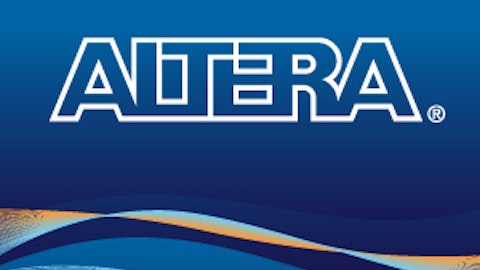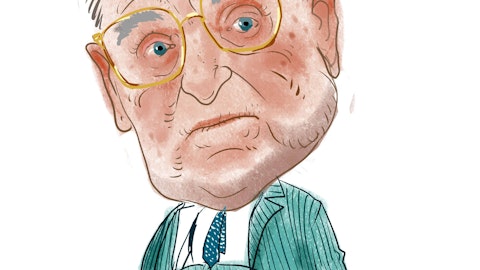It is generally believed that high quality stocks provide a cushion during market downturns. Standards and Poor’s has verified this belief in empirical research. Moreover, it has concluded that in the volatile markets, high quality stocks carry a decent premium relative to returns of lower quality issuers. The same holds true during the periods of widening credit spreads and steepening yield curves.
Given the volatile nature of the markets today and the yield-starved environment, we hold that high-quality dividend stocks represent attractive investments. We focus our attention on the constituents of the S&P High Quality Rankings Index, which consists of 139 large-cap stocks that make up the S&P 500 index. All index constituents with high quality rankings feature solid long-term growth and stability of earnings and dividends across the most recent 10 years. They have sustainable earnings power, as defined by Graham and Dodd, after examining each company’s earnings record across the span of a complete business cycle.
In the next several articles we look closely at high quality stocks that represent attractive income and value plays for prudent investors. We start with four industrial companies that have market capitalization above $7 billion and an average dividend yield of 2.6%.
Eaton Corporation (NYSE:ETN) is a $15 billion diversified industrial manufacturer of components and systems for use in the automotive and aerospace industries, agriculture, and fluid power systems. The company’s EPS grew at an average rate of 6.1% per year over the past five years, while dividends increased at double that rate. Analysts forecast that the company’s EPS growth will accelerate to 9.2% per year for the next five years. Eaton Corp has a free cash flow yield of 3.4%, ROE of 17.7%, and return on invested capital [ROIC] of 12.2%. Recently, the company signed a definitive agreement to acquire Cooper Industries Plc (NYSE:CBE), a manufacturer of electrical components and tools, for $11.8 billion. The deal will provide for significant tax synergies, cost savings, and higher capacity and geographical reach.
Eaton Corp pays a dividend yield of 3.5% on a payout ratio of 36%. Its peers Johnson Controls Inc. (NYSE:JCI), Parker Hannifin Corporation (NYSE:PH), and ITT Corporation (NYSE:ITT) pay lower dividend yields of 2.9%, 2.0%, and 1.9%, respectively. On a forward P/E basis, the stock is undervalued relative to its respective industry. The shares are changing hands at $43.82, down 8.6% over the past 12 months. Fund manager John A. Levin at Levin Capital Strategies had more than $100 million invested in Eaton Corp at the end of the first quarter.
Rockwell Collins Inc. (NYSE:COL) is a $7.2 billion producer of communications and aviation electronics for commercial and military customers. Over the past five years, the company’s EPS and dividends grew at average annual rates of 7.6% and 9.8%, respectively. Analysts forecast that its EPS will expand at a higher rate of 8.3% per year for the next five years. The company boasts free cash flow yield of 4.2%, ROE of 41.8%, and ROIC of 30.8%. In the short-term, Rockwell Collins is facing headwinds from the dwindling defense budgets. A bankruptcy filing by one of its large customers, Hawker Beechcraft, and lower growth in Europe and China, subdued the company’s sales in the previous quarter. However, while missing analyst expectations and revising downward its full-year guidance, the company still posted higher EPS compared to year ago. The long-term growth prospects remain intact.
Rockwell Collins is paying a dividend yield of 2.4% on a low payout ratio of 28%. Its competitors Honeywell International (NYSE:HON) and Raytheon Company (NYSE:RTN) pay higher dividend yields of 2.5% and 3.6%, respectively. The company’s shares are undervalued relative to the aerospace industry. They are trading at $50.53, down 8.5% over the past year. Value investor Jeffrey Ubben of Valueact Capital had more than $500 million invested in Rockwell Collins at the end of the first quarter. In the same quarter, billionaire Steven Cohen initiated his position in the stock.
Union Pacific Corporation (NYSE:UNP) is a $58 billion freight transportation company. Over the past five years, its EPS and dividends grew at 16% and 28.5% per year, respectively. EPS growth is forecast to average 14.4% per year for the next half decade. Union Pacific Corp boasts a free cash flow yield of 2.3%, ROE of 20%, and ROIC of 13.5%. The company has presented strong revenue and net income growth. It has a solid balance sheet with relatively low debt level. It also has a record of rapidly increasing free cash flow per share since 2009. High oil prices bode well for railway transportation as the least expensive mode of transportation.
Union Pacific Corp is paying a dividend yield of 2.0% on a low payout ratio of 31%. Its peers CSX Corp. (NYSE:CSX) and Canadian National Railway Company (NYSE:CNI) pay dividend yields of 2.5% and 1.7%, respectively. On a forward P/E basis, the shares are trading at a slight premium to the railroads industry, but below the company’s long-term metrics. Given the robust dividend growth, the stock is attractive as a dividend growth play. Union Pacific Corp is up 20% over the past year to the current $122.92 a share, one buck away from its 52-week high. Billionaires D. E. Shaw (see his top holdings) and Ken Fisher are bullish about the stock.
CH Robinson Worldwide Inc. (NYSE:CHRW) is an $8.6 billion freight transportation services and logistics company. It uses third-party trucks, planes, ships, and railcars to transport goods. Over the past five years, the company’s EPS and dividends grew at 11.4% and 14% per year, respectively. Analysts forecast that its EPS growth will accelerate to about 14% per year for the next five years. The stock boasts a free cash flow yield of 2.3%, ROE of 35.7%, and ROIC of 35%. The company is also debt free. It pays a dividend yield of 2.5% on a payout ratio of 49%. Its rivals Expeditors International of Washington Inc. (EXPD), Con-way Inc. (CNW), and UTi Worldwide Inc. (UTIW) pay lower yields of 1.6%, 1.1%, and 0.4%, respectively. The company’s stock is attractive based on relative valuation as the shares are trading on a P/E well below the company’s historical ratios. However, the stock is down 26% over the past year to $53.32 a share. The company’s margins have been squeezed due to carriers demanding high rates for capacity and customers seeking bargains.





